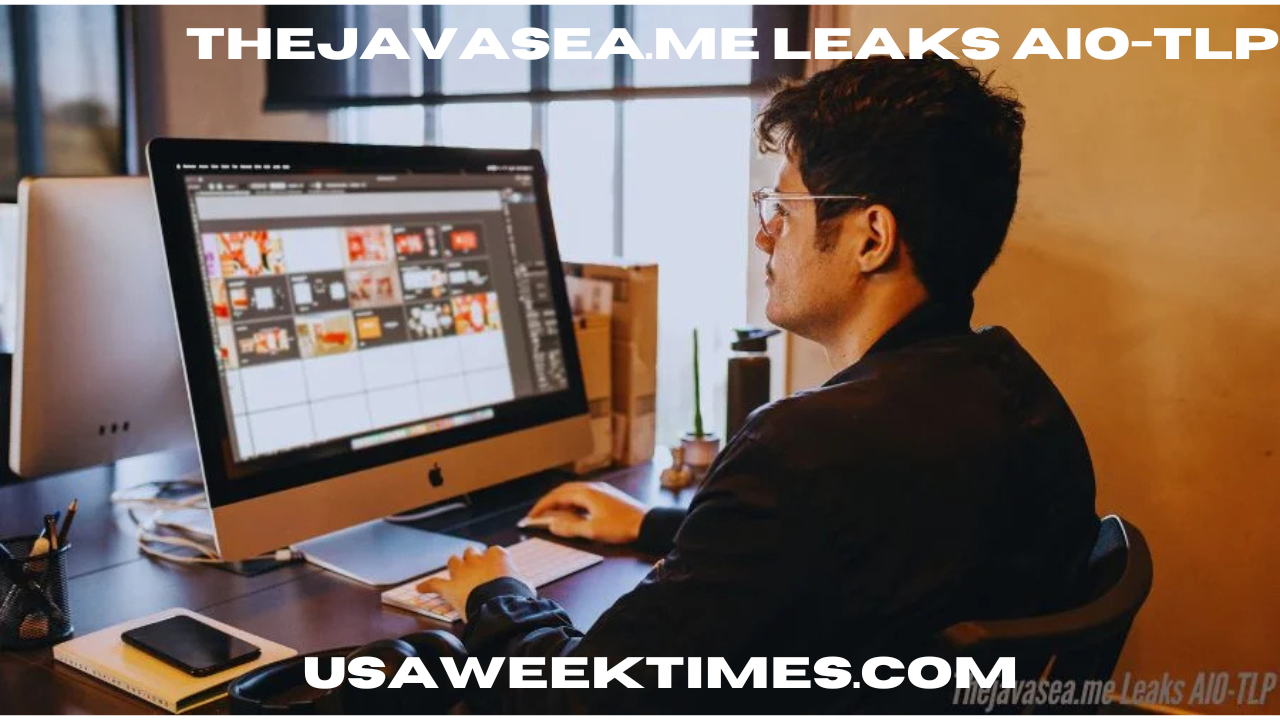Thejavasea.me Leaks AIO-TLP: A Deep Dive into the Controversy and What It Means
In recent weeks, one website has become the center of a digital storm—thejavasea.me, particularly due to the AIO-TLP leaks that have caused waves of speculation, concern, and intrigue within online communities. For those unfamiliar with the terminology, “AIO-TLP” typically refers to a collection of tools or resources (often All-In-One), which may include anything from cracked software, leaked data, or other illegal or morally questionable digital assets. In this article, we aim to dissect the thejavasea.me leaks AIO-TLP and explore the various facets of the issue, from its potential risks to its broader implications.
What is thejavasea.me?
Overview of thejavasea.me
thejavasea.me is a website that has gained notoriety for providing access to a wide variety of digital resources. These resources often come in the form of cracked software, tools, and other digital assets that are typically restricted or sold on legitimate platforms. While the site itself markets these offerings as a convenient one-stop-shop for users seeking “all-in-one” solutions, its content has raised significant legal and ethical concerns.
Purpose of the Website
At the core, thejavasea.me seems to serve as an aggregation platform, gathering various types of illicit or gray-market digital tools and resources. One of the most talked-about releases from this site is the AIO-TLP, a package that bundles multiple types of tools into a single downloadable file. These tools might include key generators, cracked applications, or scripts used for bypassing licensing systems. The site offers these resources freely or at a low cost, which entices users looking for easy-to-obtain solutions.
However, this method of distribution raises questions about the legality and morality of offering such tools to the general public. The line between convenience and copyright infringement becomes blurry, and the consequences of using these types of resources can be far-reaching.
What is AIO-TLP?
Breaking Down AIO-TLP
The term AIO-TLP stands for “All-In-One Tool Leaked Package.” As implied, it’s a collection of different tools and software combined into one package. The idea behind it is simple: rather than searching for individual tools for specific tasks (e.g., password cracking, key generators, or software patches), a user can download a single package containing multiple tools that may perform a range of activities.
AIO-TLP typically includes tools that are used in unethical or illegal activities, such as hacking, cracking, or data scraping. These tools are not only useful for people looking to bypass security measures but also for those wishing to exploit software vulnerabilities, all of which could have serious legal implications.
The Content of AIO-TLP Leaks
When discussing thejavasea.me leaks AIO-TLP, it’s crucial to understand the various types of content that might be found within these leaked packages. Some of the most commonly leaked tools include:
- Cracked Software: These are applications that have been modified to remove their licensing checks, allowing users to access paid software for free.
- Key Generators: Tools that generate product keys for various software programs, bypassing the need for an actual purchase.
- Exploits: Scripts or tools designed to exploit weaknesses in software or websites, potentially allowing attackers to take control of systems or steal sensitive data.
- Botnets: Collections of infected devices used for large-scale automated attacks, often involving spam campaigns or denial-of-service (DoS) attacks.
While these tools may sound like they could have legitimate uses in cybersecurity or penetration testing, they are often employed for malicious purposes and thus fall under gray or black market categories. The ability to access such powerful tools freely makes thejavasea.me leaks AIO-TLP an enticing yet dangerous proposition for many users.
The Legal and Ethical Issues Surrounding thejavasea.me Leaks
Copyright Violations
One of the most significant legal concerns surrounding thejavasea.me leaks AIO-TLP is the clear violation of copyright laws. Distributing cracked software or key generators directly violates the intellectual property rights of developers and software creators. These creators invest substantial time and money into the development of their products, and unauthorized distribution can result in significant financial losses.
It’s important to note that even if the software is freely available on thejavasea.me, using or distributing cracked software is illegal in most countries. The penalties for engaging in such activities range from fines to imprisonment, depending on the severity of the infringement and the local legal system.
Data Privacy and Security Risks
Using tools obtained from thejavasea.me also poses a significant risk to personal data and online security. Many of these leaked tools may come bundled with malware or spyware that can compromise the user’s computer, steal sensitive information, or allow third parties to monitor online activities.
Even seemingly harmless tools like key generators or cracked applications can be vehicles for larger security threats, including ransomware and data breaches. For individuals using these tools without understanding the underlying risks, the potential for long-term damage is high.
Unintended Consequences for Users
The ethical concerns surrounding thejavasea.me also extend to the users who download and utilize the AIO-TLP packages. Many individuals might not be fully aware of the potential consequences of using such software. Some may justify their actions by reasoning that they aren’t causing harm, but the broader implications of engaging in illegal activity—whether knowingly or unknowingly—can be significant.
In some cases, users may find that the software they’ve downloaded is ineffective, malfunctioning, or even dangerous. The promise of an “all-in-one” solution can be tempting, but many who use these leaks end up with nothing more than a compromised computer or a malware-ridden file.
The Risks of Engaging with thejavasea.me Leaks
Identity Theft and Financial Loss
One of the most pressing risks of interacting with thejavasea.me leaks AIO-TLP is the possibility of identity theft or financial loss. If users are enticed to enter sensitive information while interacting with these tools (such as credit card details or login credentials), they may unwittingly provide attackers with access to their personal accounts.
The damage can range from small monetary losses to more severe consequences, such as unauthorized access to banking accounts, theft of personal information, or even online fraud. The compromised data can be used for further exploitation, resulting in a domino effect of consequences.
Escalating Legal Trouble
Aside from the risk of malware and financial loss, downloading or distributing thejavasea.me’s leaks can escalate into significant legal trouble. Depending on the jurisdiction, engaging with illegal digital resources can lead to fines, lawsuits, or even criminal charges. Although many individuals may believe that using such resources in private doesn’t attract legal attention, the reality is that law enforcement agencies across the world are increasingly cracking down on illegal digital activities.
The Future of AIO-TLP Leaks
Growing Awareness and Crackdowns
The growing awareness of sites like thejavasea.me and the leaks associated with AIO-TLP packages has sparked reactions from both digital security organizations and government agencies. As these tools become more widely known, it’s likely that crackdowns will intensify. There are already international efforts to combat cybercrime and digital piracy, and as AIO-TLPs become more sophisticated, authorities will likely continue to target the individuals and groups behind the distribution of such illegal software.
The Ethical Dilemma for Users
The ethical dilemma surrounding thejavasea.me leaks AIO-TLP is multifaceted. While some individuals may argue that these tools are an important part of digital freedom or innovation, others believe that engaging with them is irresponsible and potentially harmful to the broader online ecosystem. As digital landscapes continue to evolve, it will be interesting to see how users, developers, and governments navigate the fine line between convenience and legality.
Conclusion
In summary, the thejavasea.me leaks AIO-TLP have ignited significant discussion in the cybersecurity, ethical, and legal domains. While these leaked packages offer users easy access to a wide range of tools and cracked software, the risks associated with their use—ranging from malware infections to legal repercussions—should not be underestimated. The growing prevalence of digital piracy and illicit tool distribution highlights the need for greater awareness and caution among internet users, as well as stricter enforcement of laws against illegal software distribution. As these issues continue to unfold, it is essential to prioritize both digital security and ethical responsibility to prevent further harm to individuals and the online community.




